Selfridges, Wells Fargo, Apple ID, Netflix, and Mercedes-Benz: Top Scams and Phishing Schemes of the Week
This week we’ve found a large number of scams that you need to watch out for, including ones relating to Selfridges, Wells Fargo, Apple ID, Netflix, and Mercedes-Benz. Would you have been able to spot all the scams?
Fake Selfridges “Partnership” Email Scam
Posing as Selfridges, a high-end department store in the UK, scammers send you emails and ask if you are interested in a “long-term partnership” with them:
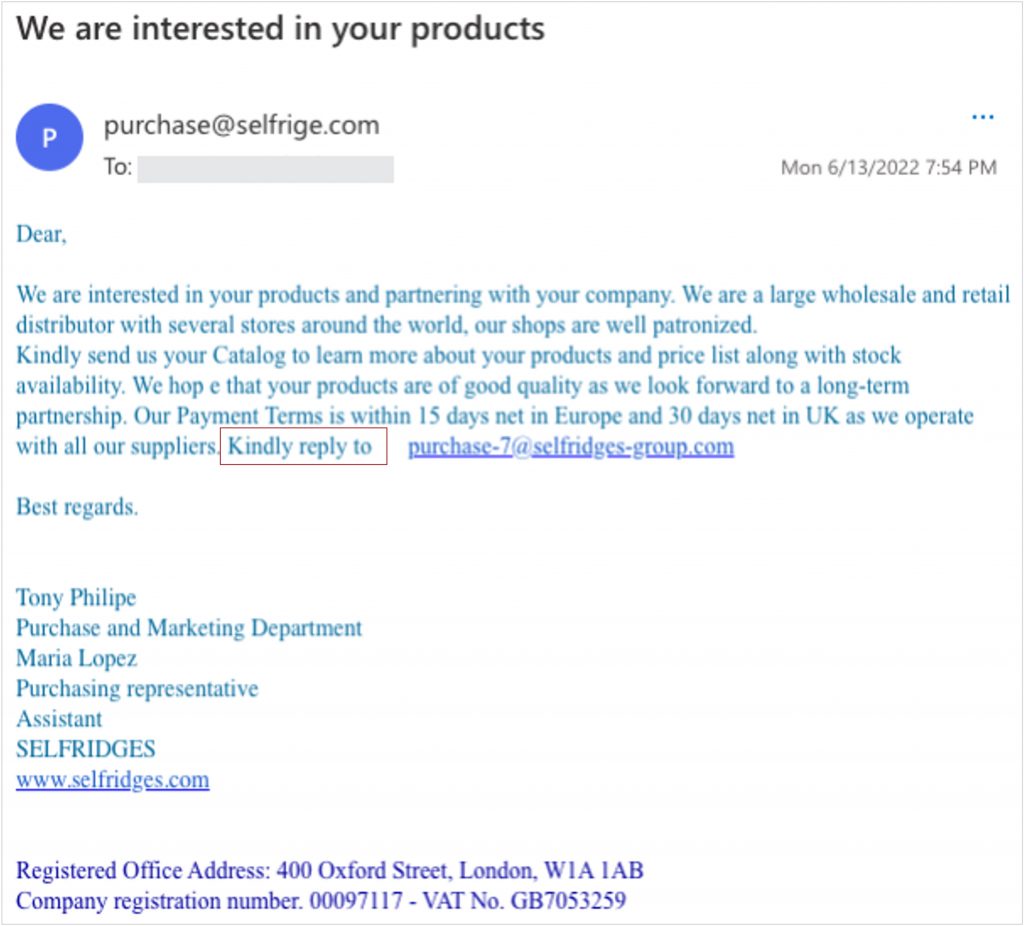
Scammers instruct you to reply to the email for further details. Don’t do that! If you take a close look at the sender’s email address, you will realize that it is NOT legitimate (a genuine one will always end in @selfridges.com).
Fake Selfridges email addresses:
- @selfridge.com
- @selfridges-group.com
Besides scam emails, scammers also use phishing links to trick you. Conventionally, while impersonating famous brands, they send out fake text messages and emails containing phishing links and try to entice you into opening them with various lies.
In such phishing schemes, the links will take you to fake log-in pages that appear to belong to various brands. These pages require you to submit log-in credentials to download a software update, change account settings, or whatever other tasks the scammers have asked you to complete. Here are some examples:
Wells Fargo Phishing Texts
This is not the first time we’ve written about Wells Fargo text message scams. Falsely claiming that there are security issues with your account, scammers prompt you to take action to secure it:
- WeIIs_farg0_AIIerts: Did you just try to sign-in_ from a new location, Seattle, Washington. If not you, See {URL} for more information.
- (Msg from WeIIs Fargo) Due to unusual activity, we have temporarily blocked your debit card. To gain access, go to. {URL}
The attached link will take you to a fake Wells Fargo log-in page. Don’t submit any credentials here — scammers can record them and use them for identity theft or to gain control of your bank account. Be careful!
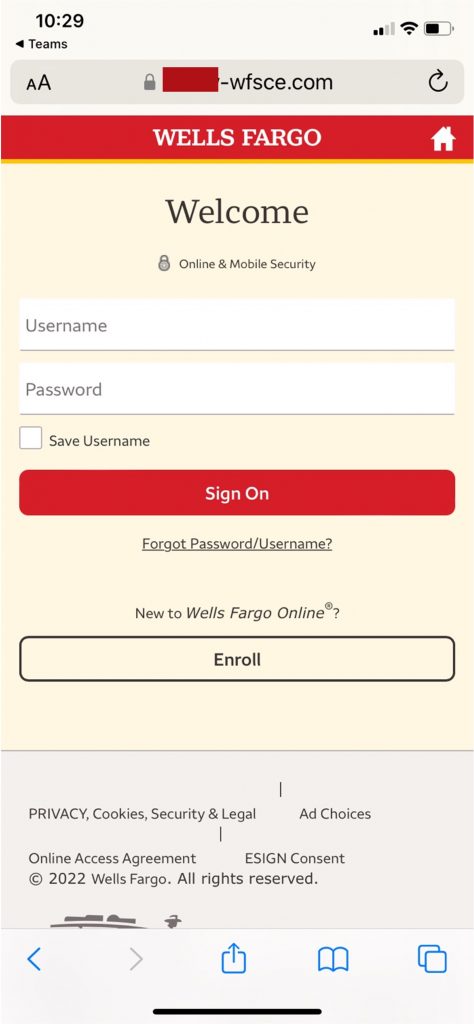
Surf the web safely with Trend Micro ScamCheck (it’s free!)
Trend Micro ScamCheck is a browser extension and mobile app for detecting scams, phishing attacks, malware, and dangerous links — and it’s FREE!
After you’ve pinned the ScamCheck extension, it will block dangerous sites automatically! (Available on Safari, Google Chrome, and Microsoft Edge).
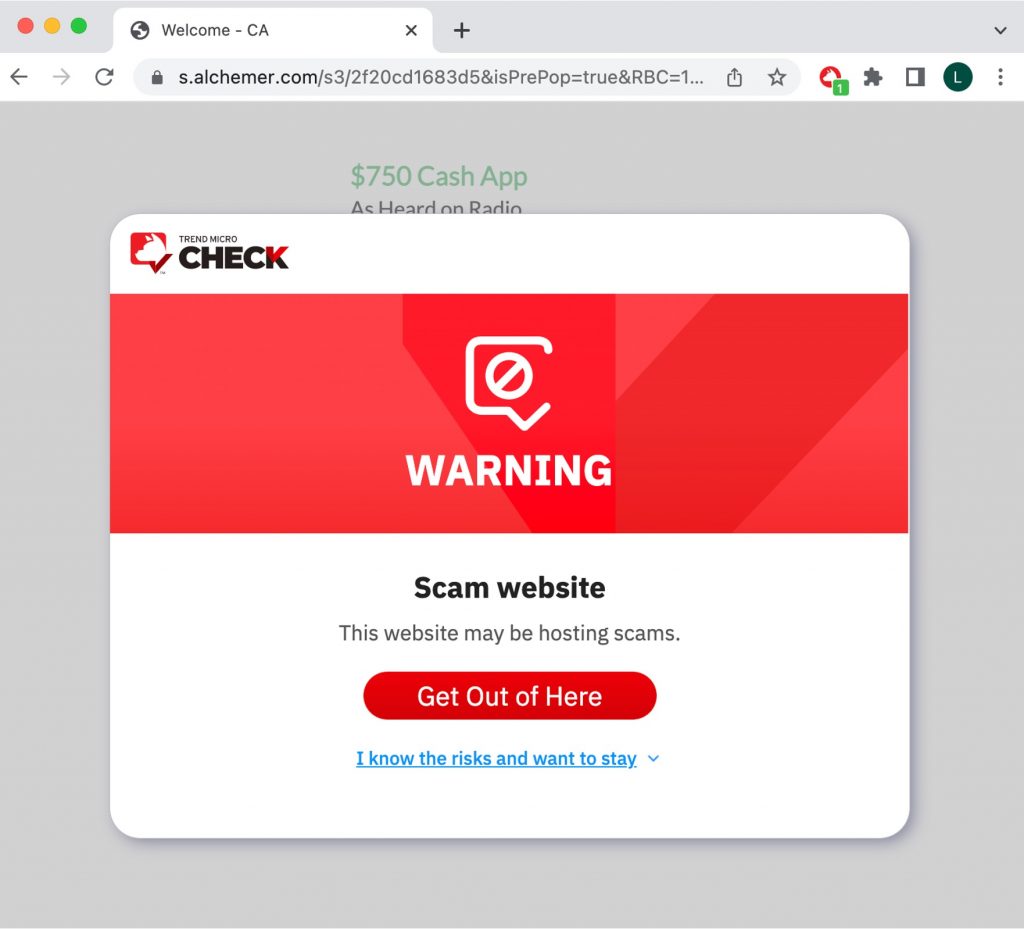
You can also download the ScamCheck mobile app for 24/7 automatic scam and spam detection and filtering. (Available for Android and iOS).
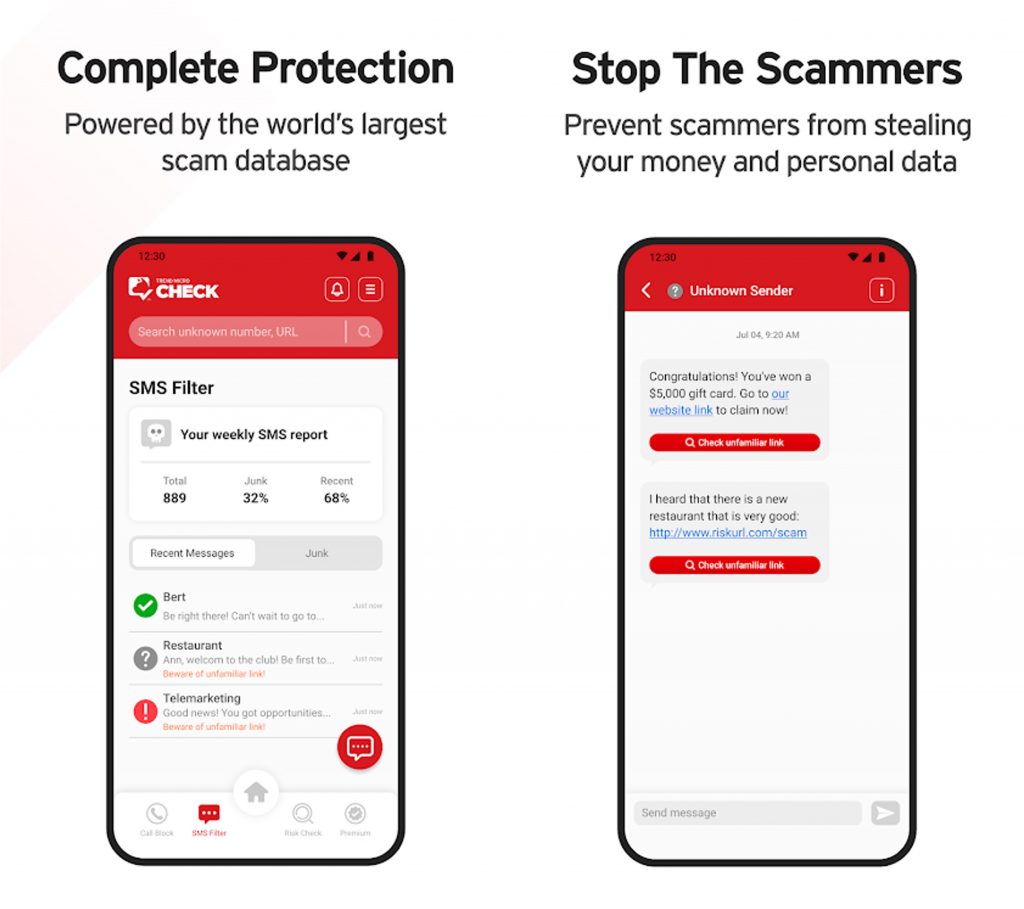
Check out this page for more information on ScamCheck.
Apple ID Phishing Texts
Impersonating Apple, scammers send you fake Apple ID security alerts via text messages and urge you to click on the attached link to verify your identity:
- apple-id: has noticed a billing error, all features will be disabled until we receive a response. please visit {URL}.
- apple id: for your protection, your login has been automatically paused. please verify your identity today or your account will be disabled. {URL}
Again, the link leads to a fake Apple ID log-in page. You already know what can happen — you could end up exposing your credentials. Don’t fall for it!
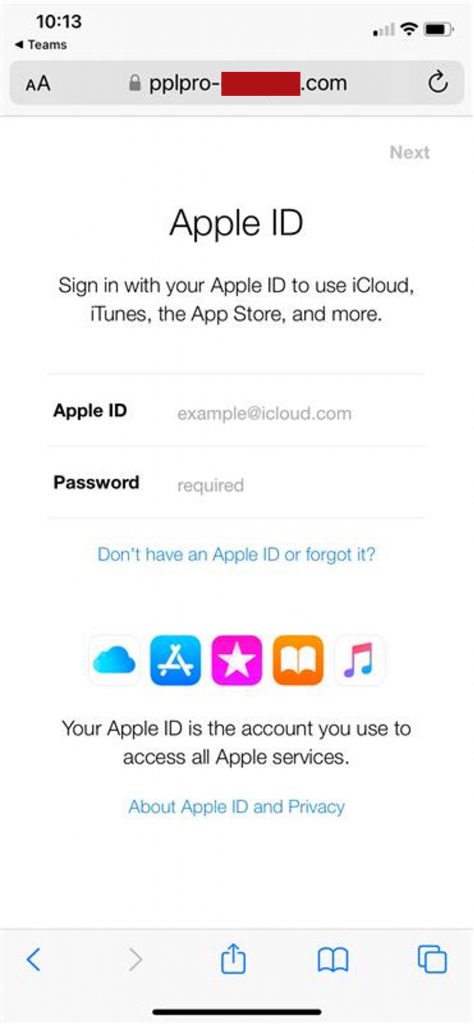
Phishing links also often take you to online survey pages that state you can claim a gift by filling out an online questionnaire. After you complete the questionnaire, you are prompted to enter credit card details before your “gift” can be delivered.
Netflix Reward Email Scam
We’ve reported on Netflix phishing emails several times before, and this week there’s a new wave of them going around. Promising you an exclusive reward, scammers lure you into clicking on the embedded button to take an online survey:

Below are some sample fake links featured in these Netflix scam emails:
- shopingmaster[.]com/id/nfr
- shopperlobby[.]com/id/nfr
Of course, there is NO gift — the scammers’ ultimate goal is to steal your personal information! They’ll record everything you enter on these fake pages and use it to commit cybercrimes: e.g., hack into your bank account, withdraw money, or steal your identity. Don’t let them!
Sometimes scammers ask you to provide personal information via other ways, such as email or online forms:
Mercedes-Benz Lottery Scam
“You have 24 hours to claim this Prize!” says an email that claims you’ve won a free brand new Mercedes-Benz. Sounds too good to be true? Yes, it is!
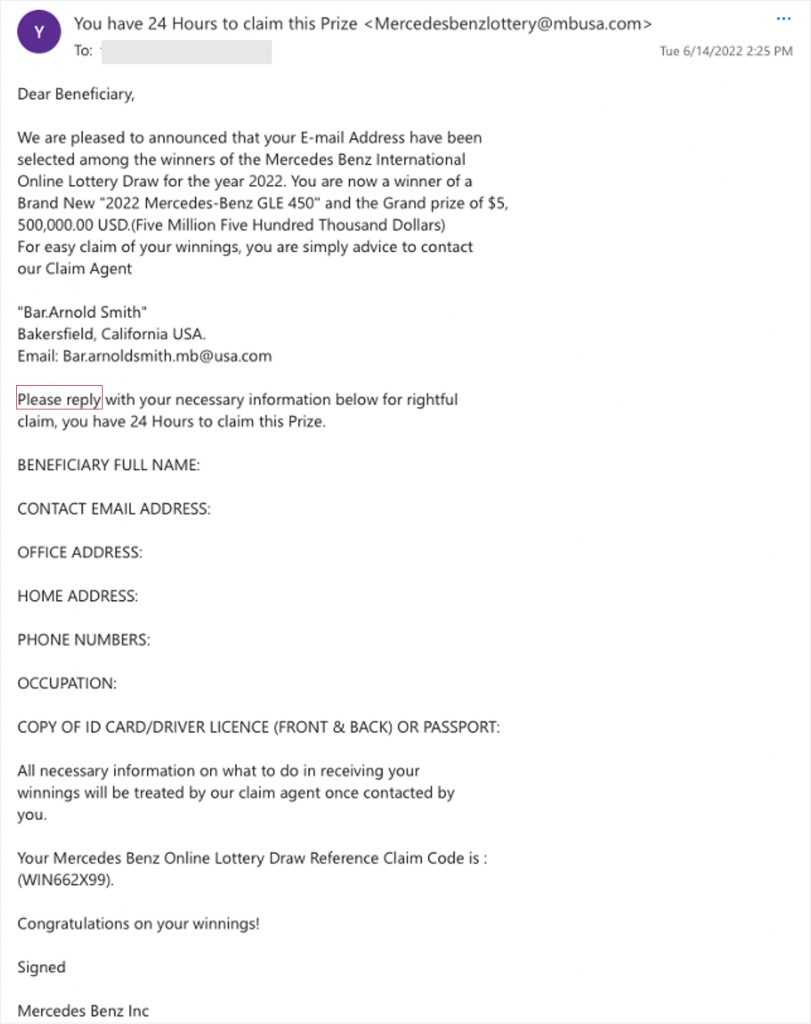
If you take the bait, you’ll have to reply to the email with a lot of detailed personal information, including phone numbers, home address, and a copy of a personal ID. With it, scammers can commit other cybercrimes under your name. Don’t get scammed!
How to Protect Yourself
- Double-check the sender’s mobile number/email address.
- Free gifts and prizes are always a major red flag.
- Go to the official website/application instead of using links from unknown sources.
- Never click on links or attachments from unknown sources. Use Trend Micro ScamCheck to surf the web safely (it’s free!).
- Add an extra layer of protection to your device with Trend Micro Maximum Security. Its Web Threat Protection, Ransomware Protection, Anti-phishing, and Anti-spam Protection can help you combat scams and cyberattacks. Click the button below to give it a try:
As ever, if you’ve found this article an interesting and/or helpful read, please do SHARE it with friends and family to help keep the online community secure and protected.
